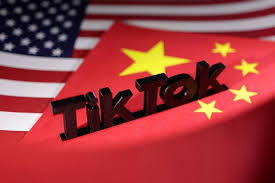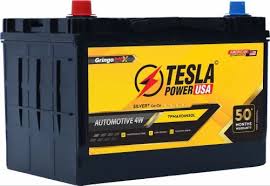The collapse of Silicon Valley Bank sent shockwaves across the technology sector, which had been the bank’s backbone. Entrepreneurs were grateful for the government bailout that rescued their money, but many also lamented the loss of a location that had functioned as a friendly club for creativity.
In a Monday interview, Stefan Kalb, CEO of Seattle firm Shelf Engine, stated, “They were the gold standard. It almost seemed bizarre if you were in tech and didn’t have a Silicon Valley Bank account.” At the same time, he was beginning the process of shifting millions of dollars to other banks.
Israel, whose thriving tech industry is “connected with an umbilical cord to Silicon Valley,” experienced a “palpable sigh of relief” as a result of the Biden administration’s decision to guarantee all Silicon Valley Bank deposits above the insured limit of $250,000 per account, according to Jon Medved, founder of the Israeli venture capital crowdfunding platform OurCrowd.
But among business owners and venture capital partners shaken by Silicon Valley Bank’s collapse, there was gratitude for the deposit guarantees that will continue to let thousands of tech businesses pay their employees and other costs while there were also reflective moments.
The crisis “has driven every company to rethink their banking arrangements and the organizations that they engage with,” according to Rajeeb Dey, CEO of Learnerbly, a workplace learning startup based in London.
Entrepreneurs who had placed all of the capital for their firms in Silicon Valley Bank are now discovering that it makes more sense to disperse their wealth among a number of financial institutions, with the largest banks being regarded as safer havens.
Kalb began the day by creating an account at JP Morgan Chase, the biggest bank in the country with around $2.4 trillion in deposits. The deposits at Silicon Valley Bank, the 16th-largest bank in the country, are 13 times lower than that amount.
The funds that Electric Era had placed at Silicon Valley Bank are being partially transferred to Bank of America, and Quincy Lee, the CEO of the Seattle-based business, anticipates that it won’t be difficult to find additional recipients for the remaining funds as part of its diversification strategy.
Every bank will gladly accept a startup’s funding, according to Lee.
However, there are concerns that it will become more challenging to finance the inherently risky ideas that underlie tech startups, which have become a specialty of Silicon Valley Bank since its establishment in 1983 during a game of poker. This is despite the fact that the introduction of the personal computer and faster microprocessors unleashed more innovation.
Silicon Valley swiftly became known as the “go-to” location for venture capitalists seeking financial partners more receptive to novel business ideas than its larger, more established competitors who were still lagging behind in terms of technology.
“They understood startups, they understood venture finance,” said Leah Ellis, CEO and co-founder of Sublime Systems, a business in Somerville, Massachusetts, that is bringing a method for producing low-carbon cement to market. Banking with SVB was a no-brainer because they were integrated into the fabric of the startup community that I am a member of.
Just as the tech sector began to expand, venture investors opened accounts at Silicon Valley Bank and recommended the entrepreneurs they were funding do the same.
Their friendly relationship came to an end when the bank revealed a $1.8 billion loss on low-yielding bonds bought before interest rates spiked last year. This alarming news sparked a disastrous run on deposits among its tech-savvy customer base.
The sudden influx of withdrawal requests from Silicon Valley Bank last week was compared by Bob Ackerman, the founder and managing director of venture capital firm AllegisCyber Capital, to a self-inflicted wound by “a circular firing squad” out to “kill your closest friend.”
According to Rob McMillan, a 32-year veteran of Silicon Valley Bank, many of the bank’s 8,500 employees are currently hanging in the balance despite assurances from the government authorities now in charge of the business that they will be given positions paying 1.5 times their salaries for 45 days.
We don’t know who will pay us when according to McMillan. I believe that everyone missed a paycheck. We are unsure of our benefits.
Despite the fact that all of Silicon Valley Bank’s depositors have been compensated, its closure is anticipated to leave a gap in the technology industry that might be challenging to fill. Michael Moritz, a well-known venture capitalist, compared Silicon Valley Bank to a “cherished local market where people behind the counters know the names of their customers, have a ready smile but still charge the going price when they sell a cut of meat” in an essay that he posted on his LinkedIn page.
William Lin, co-founder of cybersecurity startup Symmetry Systems and a partner at venture capital firm ForgePoint, predicted that many excellent ideas and brilliant teams would fail to secure funding because the barriers to entry were too high or because there were insufficient investors.
Lin anticipates that fewer firms will receive funding to pursue concepts in the same technological domains now that Silicon Valley Bank has closed and venture capitalists are tightening their purse strings. In the event that that occurs, he predicts a thinning of the market that will eventually make the top tech giants even more powerful than they already are.
“There’s a true day of reckoning coming in the startup sector,” warned Amit Yoran, CEO of the cybersecurity firm Tenable.
That may be the case, but business owners like Lee and Kalb already feel as if they have been put through the emotional ringer after spending the weekend stressing that if they couldn’t get their money out of Silicon Valley Bank, all of their hard work would be for nothing.
Lee described it as feeling like he was caught in a doomsday cycle.
He swore not to forget “a very harsh lesson” even as he concentrates on expanding Shelf Engine’s grocery store management software business.
He said, “Obviously, I now see that banks aren’t as secure as I formerly believed they were.


















